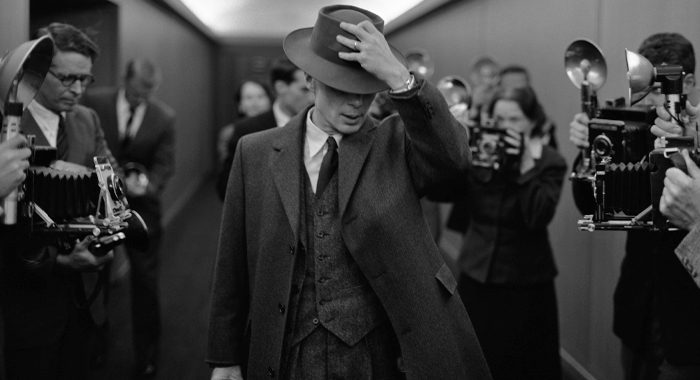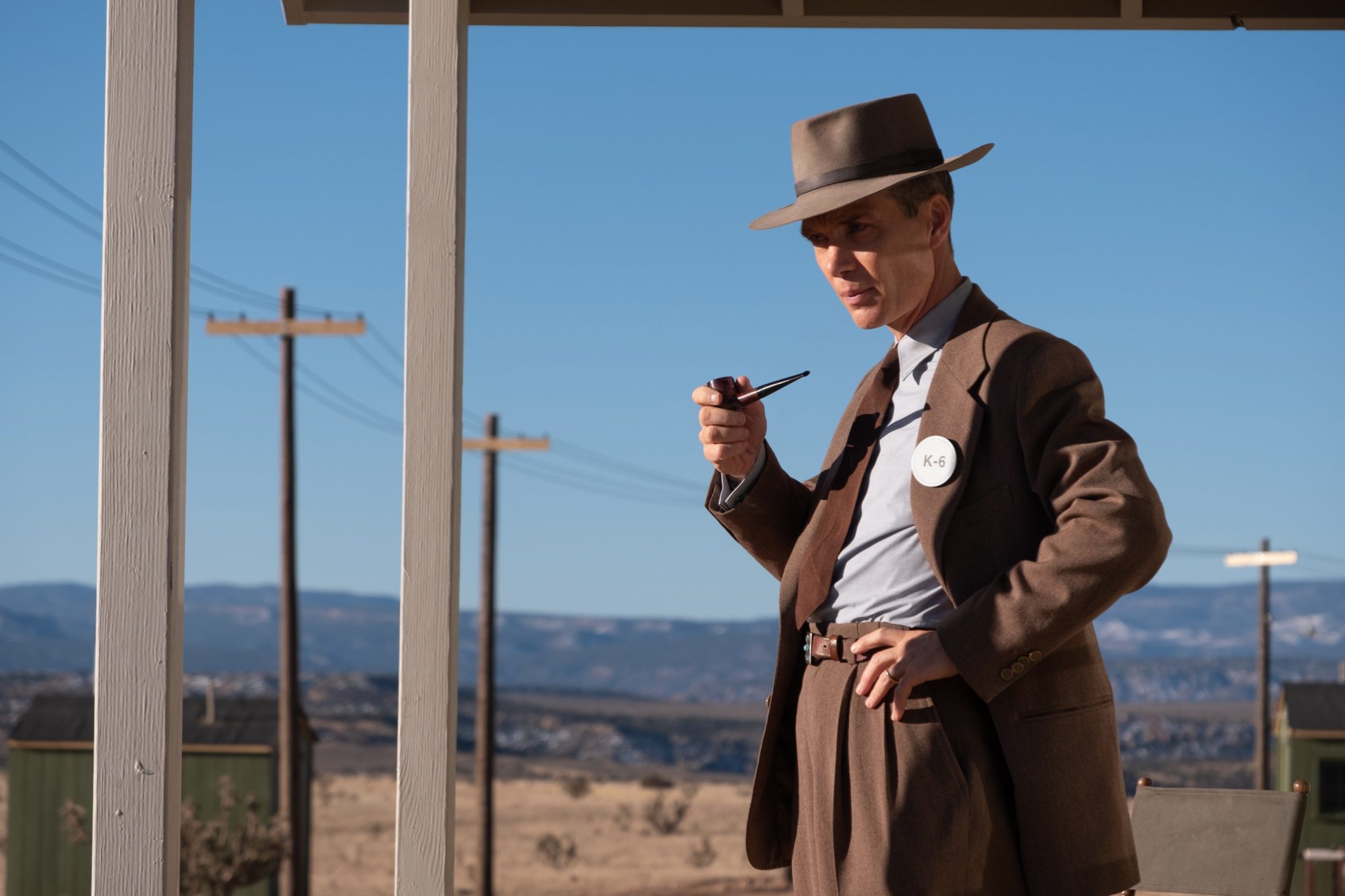Going into Christopher Nolan’s feverishly anticipated “Oppenheimer,” my only skepticism was that the director would present the dropping of atomic bombs on Hiroshima and Nagasaki with all of the vulgar bombast of an action blockbuster—a way to really give IMAX audiences the thunder they paid for. What I never expected was that Nolan would, in fact, ignore the reality on the ground in Japan completely. The unexpected problem of “Oppenheimer” isn’t that it’s too much; it’s that it’s not enough, even at three hours. The problem with “Oppenheimer” is that it’s a turgid bore.
To put it in more journalistic terms, Nolan’s oddly interior saga continually buries its own lede. His screenplay effectively makes the movie less about the development and deployment of the only nuclear weapons ever dropped on a human population, and more about the character assassination of their chief architect for his left-wing leanings.
Ever the cinematic plate-spinner of “Inception” and “Dunkirk,” Nolan juggles tenors and timelines with his unusual schematic storyboarding, hopping between Oppenheimer’s youth in the 1920s, his ascent to the pinnacle of theoretical physics, his leadership of the Manhattan Project, and especially a couple of hearings, post-World War II, concerning the revocation of his security clearance and the expected confirmation of Lewis Strauss (Robert Downey Jr.), a frenemy to Oppenheimer, to President Eisenhower’s cabinet.
The weight given to these latter plots, which play out partially in stark black-and-white, is among the most mystifying of Nolan’s decisions. We spend less time in Los Alamos than we do in voluble congressional hearings and cramped government offices—laboring, given the big picture of the movie’s subject, over comparative minutiae. As if trying to out-Sorkin Aaron Sorkin, Nolan’s muddled script suffers from an almost-relentless logorrhea that’s often in love with its own cleverness.

Take the many instances of Oppenheimer’s motives, challenges and inner world being explained to him by others, the words functioning like so much armor being constructed around the Great Man. “This is your moment,” says one. “You’re the great improviser, but this, you can’t do in your head,” says another.” “You’re the great salesman of science,” offers someone else. And my favorite, spoken rather clumsily by Bennie Safdie’s Edward Teller to explain Oppenheimer’s seeming ambivalence toward his actions: “You’re the sphinxlike guru of the atomic bomb.” Sphinxlike!
Perhaps we need purple and implausible dialogue like this because the visual storytelling isn’t carrying its weight. For a director whose career has mastered a commanding if cluttered obsession with showing, here Nolan largely relies on telling, to a degree that approaches ad nauseum.
Not that Cillian Murphy doesn’t do his part to inject Oppenheimer with three dimensions. Hair tousled, bearing erect, eyes afire, he performs his part with with a stoic intensity. Nor is there a dud in Nolan’s sprawling supporting cast, from Matt Damon as Gen. Leslie Groves, who brought Oppenheimer into the Manhattan Project, all the way down to Gary Oldman cameoing as a folksy but soulless Harry Truman.
And extricated from the problematic movie at large, there are some dazzling moments in “Oppenheimer” that befit its large-format, 70mm photography, like the cutaways to the shuddering stars and jittering wave patterns that rumble in its subject’s head—theoretical concepts given bold and dramatic shape, and that reminded me of one of my favorite films of the aughts, “The Tree of Life.”
There’s a genuinely chilling moment in which government agents in a comfortable wood-paneled office discuss which Japanese cities to bomb and which to leave be with all the horrid casualness of a lunch order. And when the bomb is tested in the New Mexico desert, the moment is frighteningly awesome. As the participants, in protective glasses, take in the fiery mushroom cloud, it’s as if they’re watching some 3D movie. The scene is a concession to entertainment that critiques itself.
Effective moments aside, though, Nolan appears to have lost control of his project in a way that, perhaps, Oppenheimer lost control of his. Prior to seeing the movie, I had heard a commentator argue that after seeing “Oppenheimer,” audiences will be so shaken by the horror of the U.S. government’s actions in Japan that they will be forever changed in their beliefs about nuclear weapons. If only. For that kind of change, you’d be better off reading Hiroshima, John Hersey’s seminal account of life on the ground after the bomb.
Nolan treats the victims as an afterthought or, to paraphrase a painfully accurate Stalin quote, a statistic. I didn’t leave the theater with a fire in my belly to de-nuclearize the world; I left with a shrug.
For more of Boca magazine’s arts and entertainment coverage, click here.







